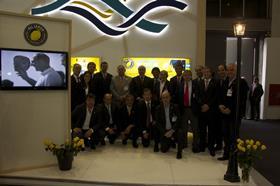
The 2014 Argentine lemon crop will be lower than last season following a series of unusual weather patterns during the growing season. According to All Lemon, blooming was affected by an extreme drought in 2013 and an unusually warm winter in Tucumán, interrupted by the worst frosts the region has experienced for 50 years at the end of July.
The association, which represents more than 80 per cent of the country’s export volume, said it would apply more stringent selection criteria to ensure that only high quality fruit is shipped to overseas clients. “For this reason, we will strengthen the team of inspectors in order to increase daily control over packing,” explained president Romain Corneille. “We will not allow any export outside the quality standards established in our quality manual.”
He noted that it was too early to give a final number for losses in 2014, particularly in light of the high temperatures currently being experienced in the region, which was causes fruit spilling and making the final volumes difficult to forecast.
In spite of the shortage, All Lemon’s vice president Carlos Parravicini assured customers that supplies would be sufficient to meet demand in Northern Hemisphere markets during the summer months.
The association, which recently celebrated its fifth anniversary at this year’s Fruit Logistica in Berlin (pictured), said in terms of markets it expects to increase its presence in Middle Eastern and Asian markets in line with the trend seen in previous seasons. Asia is the region that has experienced the most rapid growth, with shipments rising by 22 per cent in 2013 compared to the previous year. Malaysia, Indonesia, the Philippines, Hong Kong, Singapore, Jordan, Saudi Arabia, the UAE, Qatar, Turkey and Iraq are the main markets in the region for Argentine citrus.
Meanwhile, All Lemon confirmed that negotiations are underway between plant health authority Senasa and Japan’s Ministry of Agriculture to agree a new import protocol for lemons entering the Asian country. At present, fruit is required to undergo cold treatment during transit, but its effect on quality and shelf-life has led to consignments being rejected on arrival and shipments have effectively ceased.






No comments yet